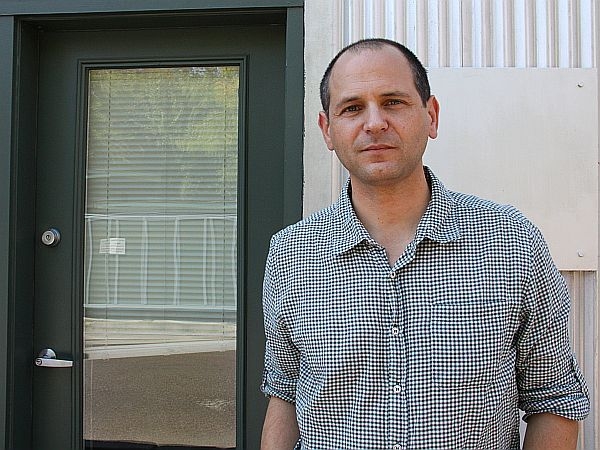
Shayne Lynn looks through the single window in his small, corrugated metal storefront and envisions the medical marijuana business he’s getting ready to open here along Burlington’s waterfront.
"There will be an old-fashioned glass countertop, and then there will be a selection of cannabis products underneath the glass. I see it as a small waiting area," Lynn, who grew up on a farm in Newfane, explained on a recent afternoon.
Lynn, 42, is passionate about medical marijuana. He founded a nonprofit called Champlain Valley Dispensary two years ago and then submitted his application for a state permit.
When the state approved it, he says he was thrilled and humbled.
"It gives you pause to make sure this is something that you really want to do," Lynn said. "I think the law that the Vermont Legislature passed is good and those regulations are what will help this program succeed."

The law allows up to four dispensaries across the state, and it says dispensary operators have to be a nonprofit. Applicants have to specify a proposed location and include a detailed security plan for the store and for where they’ll grow the marijuana.
Public safety officials have given conditional approval to the state’s first two medical marijuana dispensaries, including Lynn’s in Burlington. With the support of city officials, his dispensary is expected to open its doors in the next six months.
Jeff Wallin is director of the Vermont Criminal Information Center and he reviewed the applications. Wallin says Vermont has one of the strictest policies of states that permit dispensaries.
"We certainly are the only one with the Department of Public Safety being the one that oversees the medical marijuana dispensaries," Wallin said. "It’s just something that we’re taking a very deliberate approach on."
Wallin says there were five applications. Burlington was approved and so was one in Waterbury, which will be run by an organization called Patients First of Waterbury.
In Burlington, Shayne Lynn says he expects to have one full-time employee and two part-timers. No word on how much he’ll charge for his products, but he hopes to serve about 250 people.
Lynn has the support of city officials, including Mayor Miro Weinberger.
"There have been successful dispensaries in many parts of the country," Weinberger said, standing in his office just blocks from Lynn’s dispensary. "We’re watching, but we’re certainly hoping that’s exactly what happens here."
With those high expectations, Lynn feels a certain weight of responsibility. "There are stereotypes out there about cannabis use, and this is an opportunity to change that and show that people really use it for symptom relief – and that it can be a positive," he said.
Some critics say the product is too dangerous, in part, because marijuana use and sales are still against federal law. Others say medical marijuana is addictive and see it as a front for drug legalization.
Vermont’s law does allow towns to opt out of the program by crafting zoning ordinances that preclude dispensaries. The town of Stowe has prohibited dispensaries through its zoning bylaws, and several other towns are discussing it.